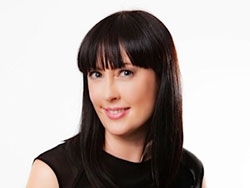It may focus on fresh fruit and vegetables but the Paleo diet fails to serve up all the nutrients our bodies need, as recommended in the revised
Australian Dietary Guidelines (ADGs).
Instead, the Paleo diet dishes up a high protein, high fat, low carbohydrate diet with no dairy products or grains.
Subscribe for FREE to the HealthTimes magazine
That’s the message from the Dietitians Association of Australia (DAA), Australia’s peak body for nutrition and dietetic professionals, in the wake of celebrity chef Peter Evans’ criticism of the DAA and the Heart Foundation over the benefits of the Paleo diet.
The chef accused the DAA of “fearmongering” through
warning about the dangers of the Paleo diet.
He also attacked the organisation for continuing to back
the ADG which he labelled “may be the biggest con that has even been put on a population which influences schools, childcare centres, hospitals, aged care homes”.
“This needs to be addressed for our kids and the future generations and I have no delusion that this will happen overnight and we have been chipping away slowly at this, but now, hand me the bloody sledgehammer,” Mr Evans wrote on his
Facebook page.
Clare Collins, a spokesperson for the DAA and Professor of Nutrition and Dietetics at the
University of Newcastle, said while the Paleo diet places an emphasis on eating a wide variety of vegetables and fruit, it promotes eating too much red meat.
“If you look at the World Cancer Research Fund’s report, the risks for bowel cancer increases once your red meat intake goes over 500 grams per week,” she said.
“Now, the Paleo promotes eating as much red meat as you like and what’s disturbing is that a lot of the images, when this is promoted on television, show very fatty meat.
“It increases your risk for bowel cancer and the large amounts of saturated fat on fatty meats is bad for your heart.”
Professor Collins said the Paleo diet also excludes all grains and dairy.
“For Palaeolithic man, it didn’t really matter about his bones, he wasn’t living long enough to get osteoporosis,” she said.
“Omitting dairy from modern day man is crazy, you need a good source of calcium - so if you don’t drink dairy or eat yoghurt or cheese, one of the soy milks that has calcium in it or if you aren’t willing to do that then you really need to consider a calcium supplement.
“The evidence also shows that the larger your wholegrain intake, the higher your dietary fibre intake and the lower your bowel cancer risk.”
Professor Collins said much of the Paleo diet was inconsistent with the ADGs.
“I was part of the membership team who undertook the 20 plus systematic reviews that looked at 55,000 abstracts, we generated 200 evidence statements that the National Health and Medical Research Council (NHMRC) used to update and revise the Australian Dietary Guidelines,” she said.
“They’re our framework, they are designed to lower health care costs, improve the dietary patterns of Australians, to improve people’s health and well-being, and we should not ignore those.”
Professor Collins said Accredited Practising Dietitians (APDs) are qualified health professionals who base their decisions and advice on scientific fact.
“Palaeolithic man thought that the world was flat. Now, if somebody yelled out now - oh, the world is flat, everybody would say ‘you’re an idiot’,” she said.
“So just because something worked for man 11,000 years BC doesn’t mean it’s going to work for him in 2014 where life expectancy is in the 80s and now we need nutrient and eating patterns that will get our bodies healthy and through to that age so we can still enjoy life.”













